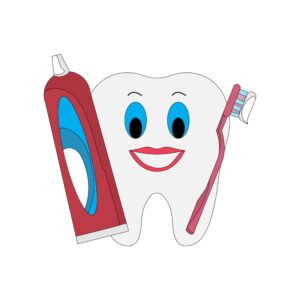Tips to Aid You in Getting Used to Your New Dentures

Although the primary goal of a dentist is to protect your natural teeth and gums, there may come a time when dentures can be the best option to treat. Dentures today are more realistic in appearance than ever before, and if properly fitted, they will allow you to smile again, eat the food you enjoy, and feel great about yourself.
Dentures being worn for the first time can cause some minor discomfort. This is normal. Dentures are a strange thing that your mouth is not yet accustomed to wearing. Thus, it is normal for your gums and gums to feel uncomfortable or sensitive when you first start using dentures. It is because your mouth has yet to adjust to wearing dentures.
Adjusting to Dentures
Dentures are removable prosthetics for the mouth that can restore chewing, smiling, and speaking capabilities if natural teeth aren’t present. Adjusting to life with dentures will require a lot of effort initially, but it gets more manageable over time. If you’re lucky, our suggestions can help you quickly adapt to living with dentures.
1. Never Let Dentures Dry Out
Because of the constant saliva flow through your mouth, your natural teeth are never left dry. Dentures must also be submerged in water or a cleaner to soak them when they’re not worn.
Cracked and warped dentures are caused by drying out. Dentures must be constantly kept moist to ensure that they continue to protect your smile and dental health.
2. Brush Your Dentures
Dentures require regular maintenance, as do natural teeth. Bad breath and other dental issues can result from dirt and bacteria that accumulate on dentures. There is a high chance that your new dental treatment will begin to discolor due to the accumulation of food particles. If you keep your dentures Guelph clean regularly, you can maintain your beautiful teeth for many years.
3. Brush Your Gums and Tongue
Did you know that maintaining dental health can be just crucial as taking care of the natural tooth concerning dental hygiene? If you don’t brush your teeth twice daily, the bacteria will begin to build up in your mouth and develop gum disease. Gingivitis can be prevalent among adults.
To ensure the longevity of your dental implants, taking care of the gums as they rest on is essential. The gentle bristles can help stimulate gums. You can set an appointment with a childrens dentistry Whitehorse for your kid’s dental needs.
4. Practice Speaking
Be reassured if you cannot pronounce a word correctly. People who have just started using dentures often experience this. It may take some time for your cheeks, lips, and tongue to become accustomed to dentures used for speech. Keep faith that your lisp will eventually go.
Reading aloud one of your favorite books is the best method of enhancing your pronunciation during the interim. Dentists agree that the more you practice with your newly fitted dentures, the more they’ll be for you.
5. Use Dental Adhesive
Suppose you’re struggling to get used to your new dentures. In that case, your dentist may recommend a dental adhesive or cream—denture adhesives to keep false teeth together, reducing the initial irritation from the prosthetics. A stronger denture will look and feel just like natural teeth, making it simpler to become comfortable with.
Before using a new adhesive, consult your dentist to ensure that it will not cause irritation to your gums or cause other problems. Denture adhesives can only be suitable for certain denture kinds, so you must be cautious about covering a poorly fitting denture. If your teeth are in pain after applying an adhesive, you must schedule an appointment with your dentist. You can contact a cosmetic dentistry Coquitlam expert for advice on dental posture and appearance.








